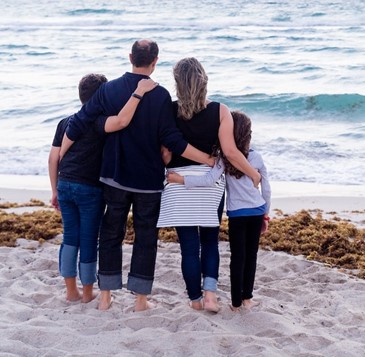
Not long ago, families were largely kept out of the residential treatment for loved ones.
They were seen as a distraction or even detrimental, especially when it’s a child who is going through residential therapy. Often, families were seen as being the source of the problem, not part of the solution.
Fortunately, Alpine Academy Utah reports that times have changed. While many consider addiction a family disease since it impacts entire families, it is only recently that families have been seen as integral to successful residential therapy programs.
Often, involving supportive and loving families in treatment can make all the difference.
The Importance of Family
Families can offer insight into the behavior and unique needs of the person seeking treatment. Families also happen to be impacted in a range of different but specific ways, including emotionally and physically.
Understanding how a teenager’s behavior is exactly impacting a family can help guide elements of residential therapy.
Familial involvement makes an impact even before a teen enters therapy. Families can provide a wealth of information about the nature of a child’s behavior that is concerning. Therapists can learn whether different types of therapies have been attempted.
According to the experts at American Association of Children’s Residential Centers, family involvement is now a necessity when treating teens in residential care. In fact, many residential treatment programs have been developed to focus on care that is driven by these relationships — which in turn, strengthens the family bond.
Families Welcome
Families are a consistent presence at our facility, where family-focused treatments include monthly visits and quarterly workshops. Family therapy sessions, coaching, and other family-centric activities are included.
Such involvement is quickly becoming standard for teens in residential therapy programs. Studies show that residential treatment centers find that family-centered therapy leads to more positive outcomes since all family members have learned new skills to support a child, sister, or brother and communicate better.

Relatives who participate in residential therapy programs are usually dedicated to success during treatment and are active in developing a post-treatment plan as well. In fact, one study found that the best predictor of recovery is whether families were involved with the process.
Increasingly active within addiction recovery, families can learn how to establish boundaries that are healthy and get recommended community networks to provide support post-treatment.
Teens participating in residential therapy programs have a range of needs — medical, behavioral, social, emotional, and educational. The bonds of the family unit are the largest source of support for the large majority of a patient’s needs.
Setting Up Success
Education for families is now a common goal for overall treatment. In doing so, families can learn more about the complex nature of addiction and co-dependency as well as work on communication skills needed to build (or rebuild) a positive relationship with a child, and ways children must care for themselves even if they have a support system.
It’s not just that residential therapy programs want families to participate in the treatment process. It’s that they need them to ensure positive outcomes throughout every treatment milestone.



